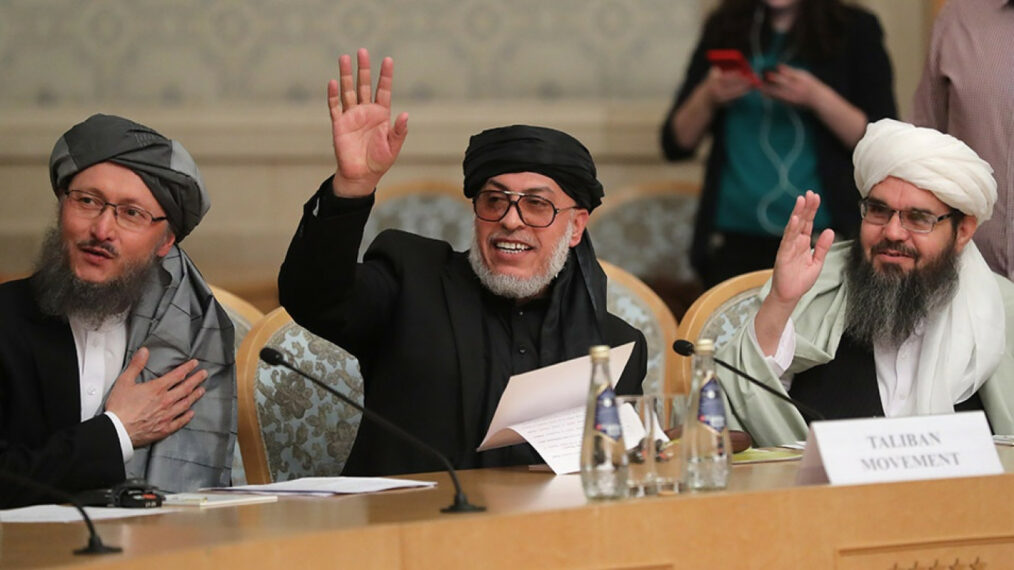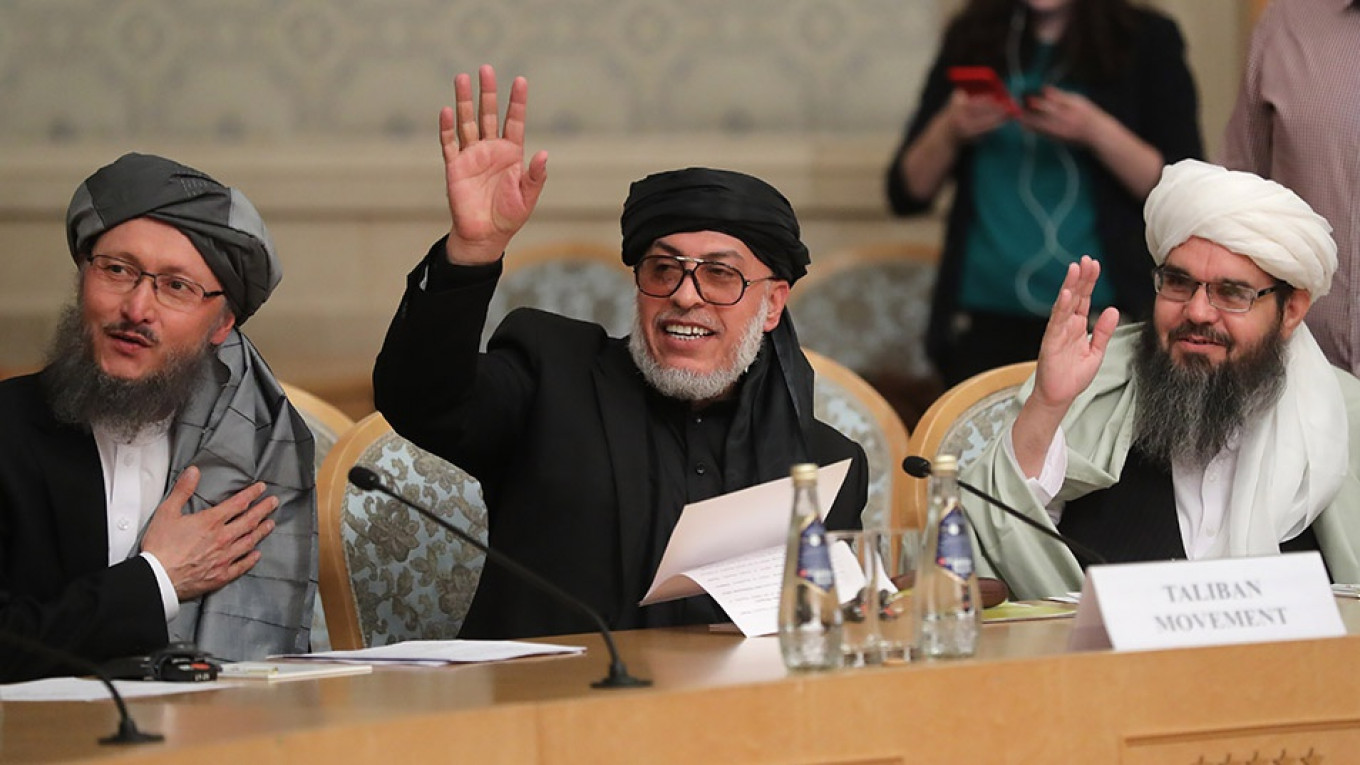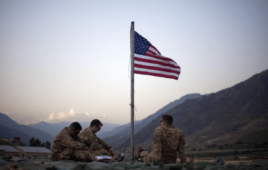
Afghanistan: Results of the Moscow talks with Taliban

Taliban representatives at the Ministry of Foreign Affairs of the Russian Federation / Sergei Savostyanov / TASS
Earlier this week, Channel News USA discussed how the Taliban and Afghan government held talks in Moscow regarding women’s rights, a new Islamic Constitution, and the exit of the United States from the war-stricken country.
The meeting was headed by former president Hamid Karzai, Afghan politicians consulted with Taliban members to reach an agreement on how to reach long-lasting peace. The New York Times noted that Afghan politicians wanted to focus on keeping the rewards from the past twenty years, whereas the Taliban mostly discussed how they know believe that women should be given more rights, such as the right to work and education. Sher Mohammad Abbas Stanekzai, who heads the Taliban delegation, discloses to the reporters that the talks went successfully.
“We agreed on many points and I am hopeful that in future, we can succeed more further, and finally we can reach a solution. We can find complete peace in Afghanistan.”
The Afghan delegation consisted mostly of former Mujahideen political leaders, elites, members from political parties, and current members Parliament. There were only two women in the entire delegation.
Afghans expressed on different kinds of social media that this delegation does not necessarily accurately represent Afghanistan. However, Afghan politician Atta Muhammad Noor stated that the participants of the delegation viewed themselves to be more representative of Afghanistan than the current government.
The National discusses how in the end, there was a joint declaration formed that addressed “removal of foreign forces, the release of Taliban prisoners and removal of Taliban leaders from a UN blacklist.”
However, even though the talks seemed to have helped make progress with current issues, Afghan civilians and political commentators feel that the talks have actually harmed chances of long-term peace, while also giving Taliban insurgents an advantage with their negotiations with the United States.
Although such talks had not happened in the past due to fear of disapproval from the United States, there is still debate on whether the current talks were successful. Hekmatullah Azamy, deputy director at Centre for Conflict and Peace Studies, believes that the Moscow talks greatly increased the insurgents’ influence and advantage.
“The Taliban had made military progress in the last year, but with this meeting, they have also gained certain political status and legitimacy, in terms of local diplomacy,” he said.
“To see them recognized by the Afghan political elite should worry the government because in some ways it brings the Taliban mainstream. The next time they sit with the US, the Taliban can say confidently that the Afghan people don’t have a problem with them. This will affect the Afghan government.”
Mr. Azamy also believes that the president has been handling these talks diplomatically, as Mr. Ghani offered the Taliban to open an office inside of Afghanistan, even though the insurgents quickly declined the offer. Overall, a majority of civilians have reacted by criticizing the absence of government during the talks and the lack of accurate representation. Afghans fear that there will be the return of communism and mujahideen if American forces leave the country.
Ultimately, holding these talks in Moscow in the first place was a good step in the right direction. Beginning negotiations will help in producing solutions that work for both parties, while also benefiting the citizens. Mr. Karzai should have presented a more diverse and representative delegation, in order to prove to civilians that these talks are to help them, too.
Additionally, the Afghan government, specifically the president, should have been present at the talks, since the Afghan government is such a crucial part in bringing peace to the country, and the government itself plays a major role in the country.
Lastly, more talks should be held in the future, possibly with the involvement of the United States, since the role that America plays in Afghanistan’s long-term peace is of concern to citizens and politicians.



